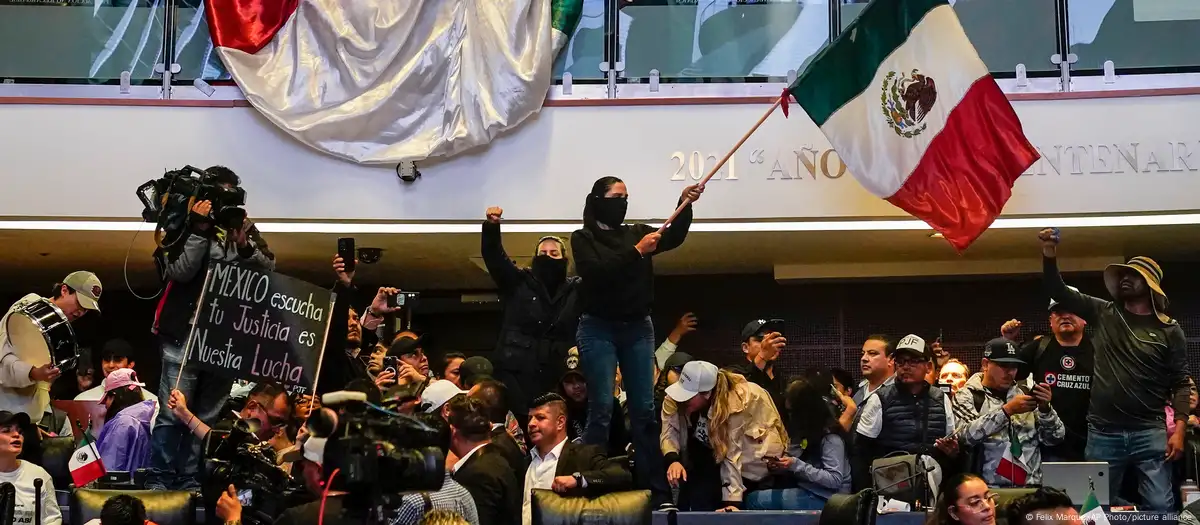
Mexico’s Senate Passes Reform to Elect Judges
Mexico's Senate approved a historic constitutional reform, making it the first country to allow voters to elect judges at all levels. The reform, backed by outgoing President Andrés Manuel López Obrador, aims to change the current judicial system, which he argues serves political and economic elites. The reform passed with 86 votes in favor and 41 against, surpassing the required two-thirds majority.
The decision sparked significant protests, including judiciary workers and law students who believe the reform threatens judicial independence. Demonstrators stormed the Senate, chanting opposition to the changes, forcing lawmakers to relocate to a former Senate building to resume debate.
Critics argue that electing judges could increase vulnerability to criminal influence, particularly from powerful drug cartels. Supreme Court Chief Justice Norma Piña voiced concerns, warning of risks to judicial independence. Despite opposition, López Obrador insists the reform will reduce privileges for the political elite and ensure a fairer judicial system.
International observers, including the U.S. government, have raised concerns about potential negative impacts on Mexico’s democracy and investor confidence, contributing to recent economic volatility. The reform remains a topic of intense debate as Mexico prepares for its implementation.







